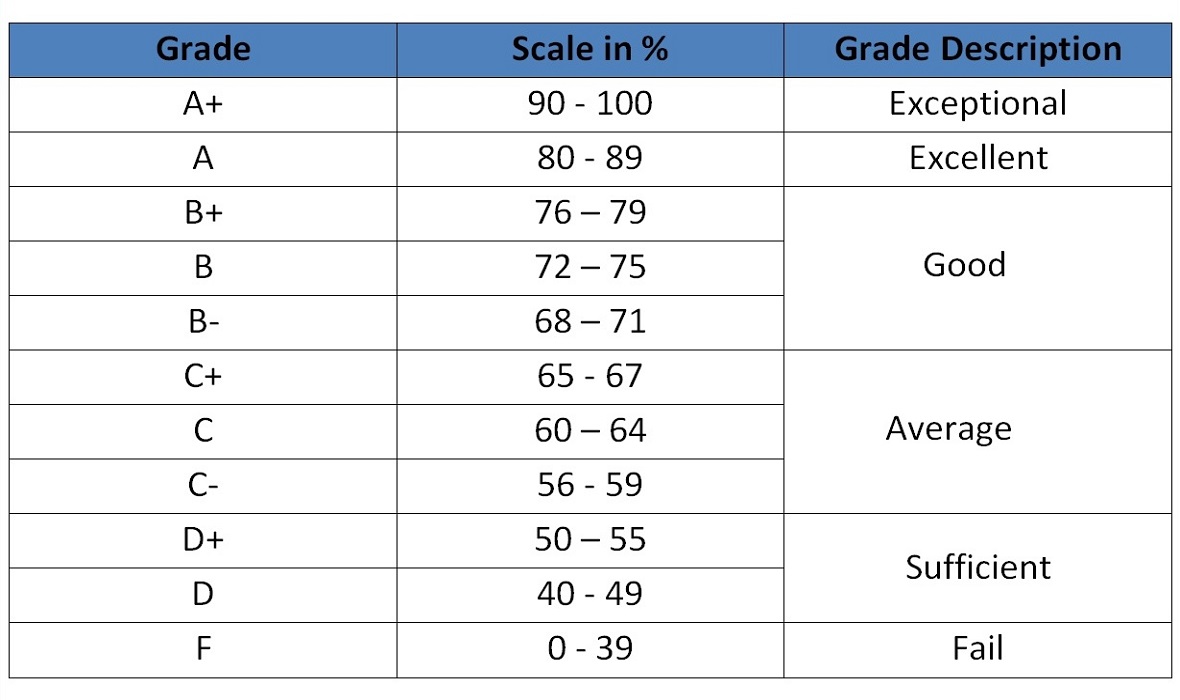1. The Marking Scheme
In FSc, students are graded based on their performance in both theory and practical exams. The subjects typically include combinations of Physics, Chemistry, Biology, Mathematics, and Computer Science. Each subject’s total marks are usually divide between theoretical exams (usually around 85%) and practical exams (approximately 15%).
2. Grade Categories
The grading system is designed to categorize students’ performance into distinct tiers, each represented by a letter grade. Here’s a breakdown of the common grade categories:
- A+ (90% and above): Exceptional performance. Students who score 90% or above are awarded an A+ grade. This grade reflects a thorough understanding and exceptional command of the subject matter.
- A (80% – 89%): Excellent performance. An A grade indicates a high level of proficiency and a strong grasp of the subject.
- B (70% – 79%): Very good performance. Students who fall in this range have a good understanding and are well-prepare in the subject.
- C (60% – 69%): Good performance. A C grade reflects a satisfactory comprehension of the subject.
- D (50% – 59%): Fair performance. Students in this range meet the basic requirements but may have some gaps in their knowledge.
- E (40% – 49%): Sufficient performance. An E grade indicates a marginal pass with significant room for improvement.
- F (below 40%): Fail. Students who score below 40% do not meet the minimum requirements and must retake the subject.
3. Pass and Fail Criteria
To pass an FSc subject, a student typically needs to achieve a minimum of 40% overall, which includes both theory and practical marks. Failing to meet this threshold in any subject means the student will need to retake the exam for that particular subject.
4. Practical Exams
Practical exams are a crucial component of the grading system, especially for science subjects like Physics, Chemistry, and Biology. These exams test your ability to apply theoretical knowledge in a laboratory setting. Practical marks can significantly impact your overall grade, so it’s important to prepare thoroughly.
5. Grading Impact on Future Opportunities
Your FSc grades play a pivotal role in determining your eligibility for higher education and scholarships. High grades can open doors to prestigious universities and sought-after programs, while lower grades might limit your options. It’s essential to aim for the best possible performance to keep your future pathways broad and diverse.
6. Tips for Achieving High Grades
- Consistent Study Habits: Regular study and revision help reinforce your understanding of the material.
- Practice Past Papers: Solving previous exam papers can familiarize you with the exam format and question styles.
- Attend Practical Sessions: Actively participate in lab sessions to gain hands-on experience and improve your practical skills.
- Seek Help When Needed: Don’t hesitate to ask teachers or peers for clarification on difficult topics.



